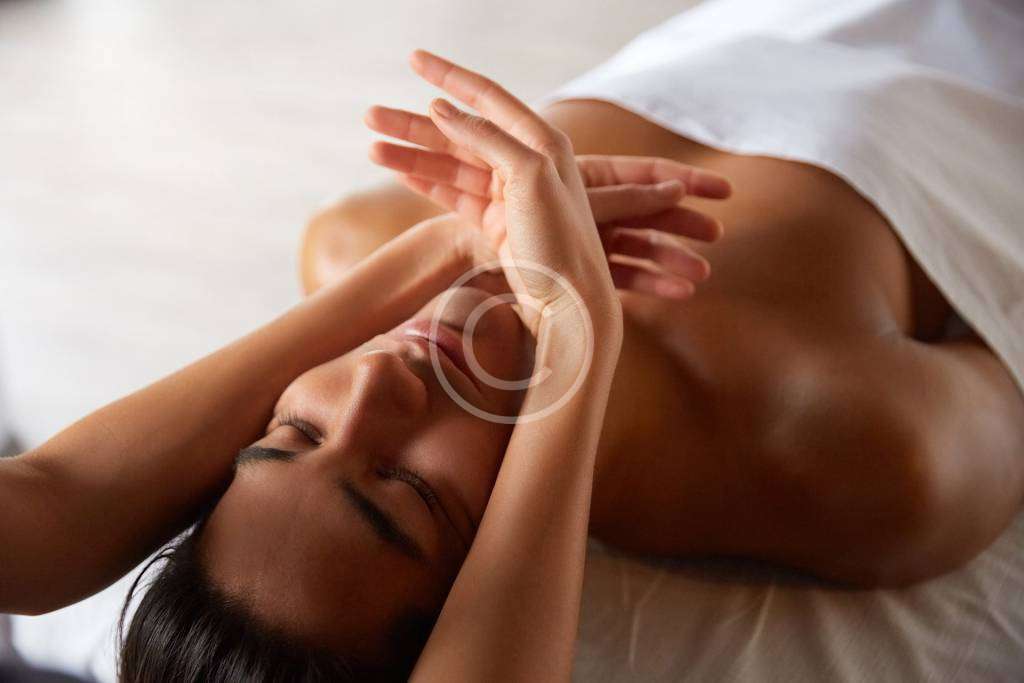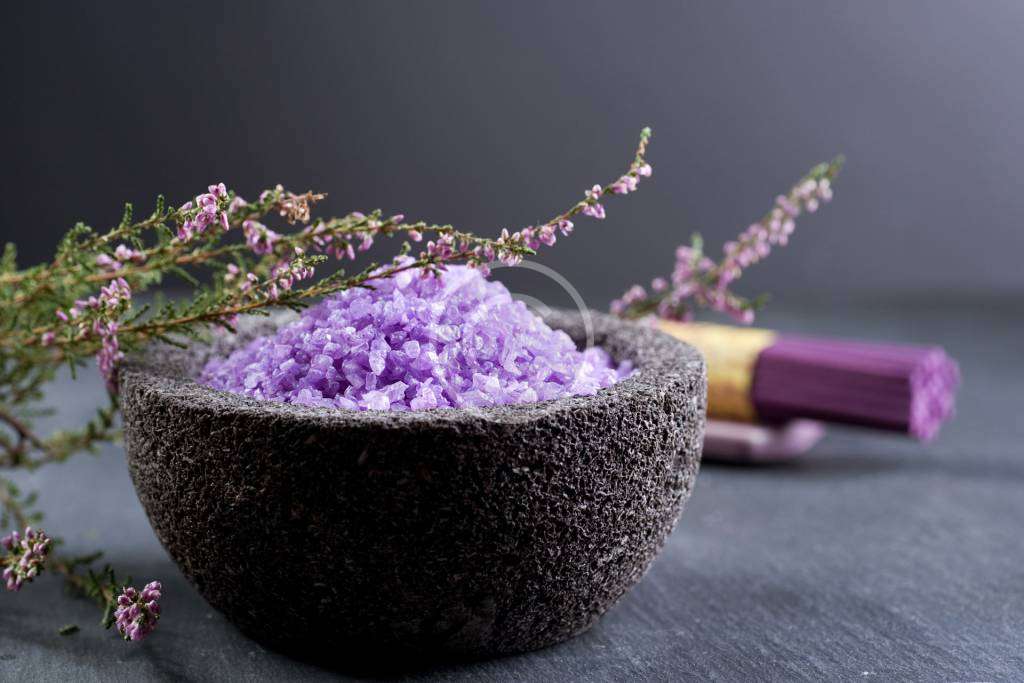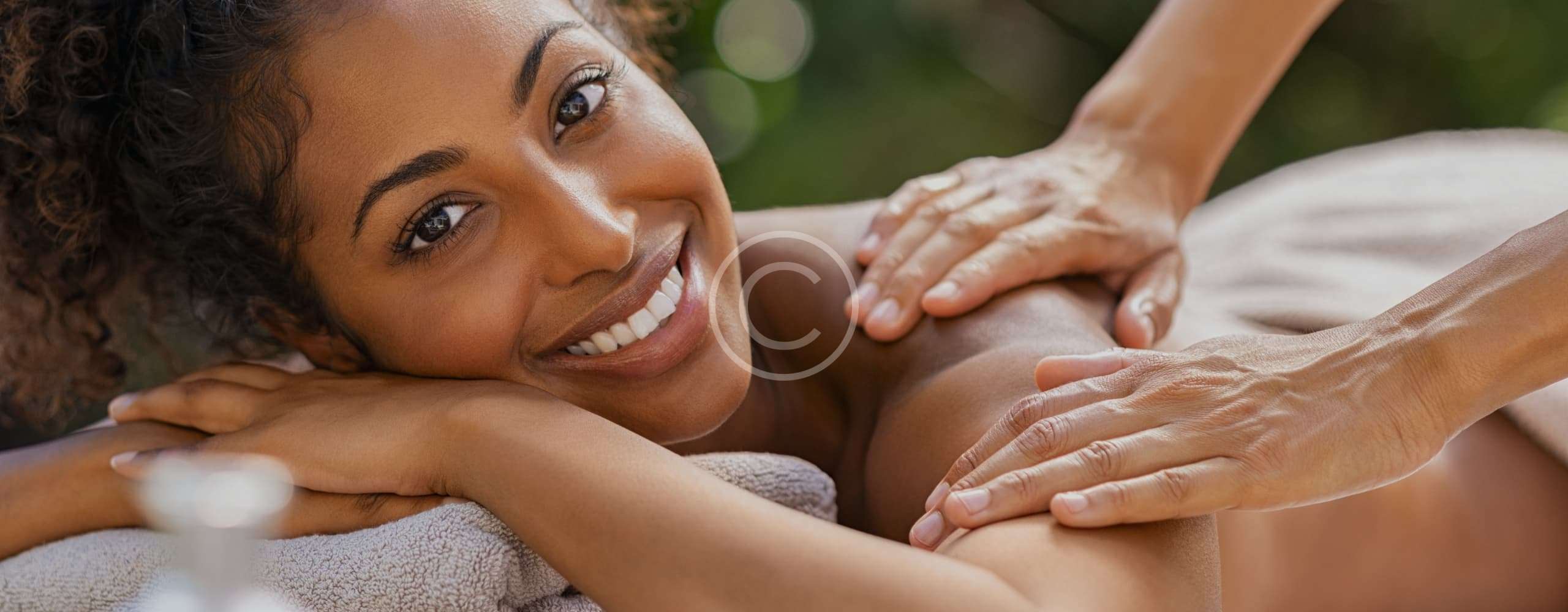Massage is a treatment that uses different kinds of physical contact to relax, revive and heal the body. It is used to treat a wide range of emotional and physical health problems and is one of the most popular treatments on a spa menu.
What is massage therapy?
Massage is the stroking, kneading, warming, rolling and pressing of skin and muscles.
There are lots of different kinds of massage, each with broadly different origins and aims – some focus on soothing muscle pain; others on increasing energy levels; some aim to improve a specific physical condition; others simply to help you relax.
Massage makes you feel good in lots of ways, and can have a positive effect on your whole body – your bones, your muscles, your heart, your skin, your breathing, digestion, and your mental health.
Massage works in various ways:
- It relaxes and refreshes tired or knotted muscles
- It increases blood circulation
- It stimulates deep circulation, both of blood and lymph which helps your body to heal, and generally work more efficiently
- It encourages your body to produce endorphins – the natural chemicals in your body that make you feel happy
- It’s instinctive to give someone a hug or a pat on the back to comfort or reassure them; in some ways, massage is a formal version of that instinct.


What are the health benefits of massage?
In its various forms, theraputic massage can help to cure and relieve a wide range of complaints. Research shows that it is particularly good at relieving stress-related problems, from anxiety and panic attacks, through to asthma, constipation and high blood pressure. It is effective at providing pain relief – treating chronic pain, back pain and even arthritis. It is also being used more and more with stroke and cancer patients and with people with dementia.
Massage encourages blood flow, which increases the amount of oxygen and nutrients that reach your organs and tissues. Whilst massage encourages your body to circulate the “good stuff”; it also encourages it to get rid of the “bad stuff” – waste products, toxins, carbon dioxide, and excess water. Stimulating the nervous system and improving the lymphatic system will also boost the immune system.
It can be used to treat specific physical injuries or difficulties, and to help with rehabilitation after someone has had a sports injury. It can also help prevent further muscle or tissue damage and improve an athlete’s range of motion.
One of the greatest effects of most complementary massages is that it can make you feel much better about yourself, more relaxed in your own skin, calm and peaceful.
You can expect to feel relaxed and calm after a massage. After some, you may feel a little achey, after others so relaxed that you are a bit vague or sleepy. On the other hand, some massages will leave you feeling really energised.
Whatever it is, try to arrange to have your massage when you have a little time to enjoy its benefits. It may not be a good idea to plan an important presentation, host a children’s party or take a three-hour drive up the M6 to visit your ex-husband immediately afterwards. Give yourself plenty of time to wind down. Think of it in the same way as you would a “cool down” after exercising; the massage will do you a lot more good if you do. A good spa will offer




